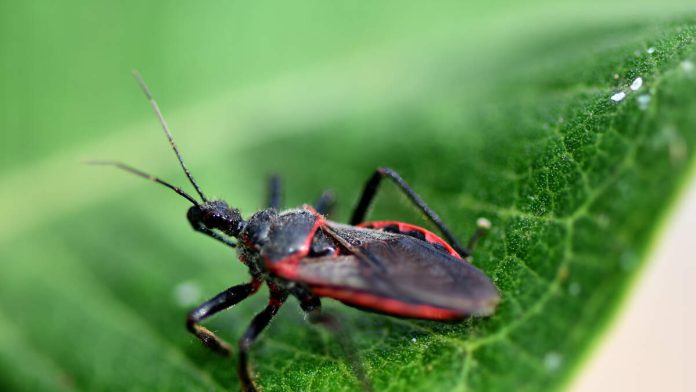Health officials are raising concerns about the spread of Chagas disease, a parasitic illness, across the United States, particularly in California. A recent study published in the CDC journal Emerging Infectious Diseases confirms human cases in eight states, prompting experts to recommend classifying the disease as endemic in the U.S.
Chagas disease, caused by the Trypanosoma cruzi parasite, is primarily transmitted by triatomine insects, also known as “kissing bugs.” According to the CDC, these insects are common in the southern U.S. and have been found in 32 states. They transmit the parasite through their feces, which can enter the human body through a bite wound or contact with the eyes or mouth.
The disease can cause symptoms such as fever, fatigue, and rash, and may lead to severe heart and digestive issues in its chronic phase. Dr. Norman Beatty, an assistant professor at the University of Florida, told Newsweek that the disease is often referred to as a “silent killer” due to its potential severity and low awareness among healthcare providers.
Human cases have been reported in California, Arizona, Texas, Tennessee, Louisiana, Missouri, Mississippi, and Arkansas. The study’s authors emphasize the importance of recognizing Chagas disease as endemic to improve surveillance and public health responses.

Recent Comments